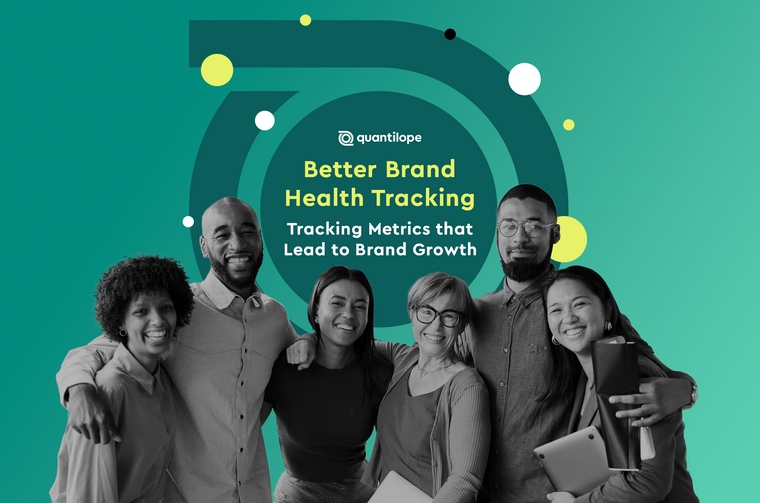The future of AI in market research
It’s not just a buzzword. AI tools accelerate market research and transform online survey methodologies into forward-thinking insights.

Recently the market research sector has seen an emergence of Artificial Intelligence (AI tools). These tools can change the market research game entirely. But first, we need to understand how to use them.
AI is the development of machines and computers that can perform tasks that typically require human knowledge. This includes the ability to understand the human language as it is spoken or written.
AI and machine learning offer huge opportunities for automation, enhancing data quality, and unlocking deeper findings in survey research. Although some companies have tapped into these possibilities, many are constrained by traditional market research approaches that leave little room for innovation.
AI can alleviate some of the biggest obstacles in survey research. Specifically regarding how we handle text-based data.
Alleviating qualitative data headaches
One of the most time-consuming aspects of survey research is analysing free-text responses. Without some form of automation, organising and deciphering answers to open-ended questions requires significant manual labour. However, these responses can also generate rich insights.
In addition to an abundance of reading, researchers must filter and categorise free-text answers into meaningful themes. Humans are pretty good at doing this on a small scale. But when there are thousands of respondents in a survey, we need something more consistent and efficient.
This is one of the many problems AI can solve and a perfect example of why it's needed.
AI tools, including NLP (Natural Language Processing) algorithms, can automatically process and classify large quantities of unstructured language data.
The use of NLP has become increasingly common in industries such as healthcare, finance, manufacturing, advertising, and more. However, only a few companies have fully leveraged these tools in survey research. Aside from the slow pace of industry change, there are also technical obstacles to adopting AI.
So how do we build AI-powered survey technology?
For AI to do a good job in any unique application, industry-specific algorithms need to be trained to align with the context and purpose that they'll serve. In market research, AI technology needs to efficiently organise unstructured data without losing the specific, actionable insights researchers are looking for. Here are three considerations for AI-powered technology in market research:
1. Dirty data
In most applications, language models are trained on sources of well-written formal text, but when it comes to survey responses, we know people don't typically write like that. They write all kinds of colloquialisms, abbreviations, emojis, and sometimes they just write profanity.
One of the primary challenges for AI in survey applications is adopting models to work on the dirty data: to recognise the difference between noise and signal, adequately filter out the nonsensical text, and learn to categorise the remaining, clean information.
2. Flexibility
Researchers ask new questions every day, and market trends and topics are ever-changing. Because research questions and answers are unpredictable, the models we create to manage them need to be flexible. The challenge is creating a model that can grab whatever respondents give them and reliably put their answers into logical groups that make sense to a human reviewer.
3. Tradeoffs between general and specific insights
The ultimate balance that an AI survey solution needs to find is the sweet spot between categorising and interpreting language data too broadly or too narrowly. If the algorithm combines individual answers too broadly, you can end up with vague insights. On the other hand, if the outputs are very detailed and specific, they might be too much to read and may not offer a comprehensive answer.
Three benefits of AI in Market Research
Despite the challenges of building flexible models to work with unpredictable language, the advantages of leveraging AI in Market Research are unparalleled. Here are three of the top benefits we already see in the survey space:
1. Time
AI-powered technology's biggest benefit is the time it saves. Automation in this field can reduce the length of a market research project from months to weeks or even days. This means more of the researcher's time can be spent evaluating the insights and the story behind the data rather than crunching numbers or trying to make sense of verbatims.
2. Increased data quality
Another benefit is higher data quality, which solves a major concern for many researchers. AI and machine learning can drastically increase data quality by internally filtering the data, but perhaps more importantly, reducing the unconscious human bias that can skew our interpretation of qualitative data.
3. Deeper insights
Higher data quality alone can help to improve the quality of your findings, but AI technology can also improve the depth of insights in other ways. Because AI tools make it easier to analyse qualitative data, researchers can collect more of it. Often, this free-text data contains the richest consumer insights.
On top of that, AI technology can identify themes, correlations, and subtle nuances between open-ended answers that we might otherwise miss, allowing us to get more out of our qualitative data.
AI-powered market research: what to expect
AI tools offer many possibilities to accelerate and transform traditional market research processes, particularly survey methodology. Surveys are moving toward being more user-centric, or in this case, respondent-centric, and AI gives us powerful ways to further that goal.
In the future, we can expect to see much shorter and more conversational surveys – with conversational being a tool that enables us to ask follow-up and probing questions in real-time. This gives us a more dynamic and authentic understanding of our audiences and markets.
Survey research is already a foundational part of market research, but integrating AI tools makes it an even more efficient, trustworthy, and profound source of market insights.
Rasto Ivanic
CEO at GroupSolverRasto Ivanic is a co-founder and CEO of GroupSolver® - a market research tech company. GroupSolver has built an intelligent market research platform that helps businesses answer their burning why, how, and what questions. Before GroupSolver, Rasto was a strategy consultant with McKinsey & Company and later he led business development at Mendel Biotechnology. Rasto is a trained economist with a PhD in Agricultural Economics from Purdue University, where he also received his MBA.
Adrian Del Bosque
Senior Research Team Lead at GroupSolverAdrian Del Bosque is the Senior Research Team Lead at GroupSolver. Prior to joining GroupSolver, Adrian earned a BS in Economics from Carnegie Mellon and later a Masters in Applied Statistics.
Sarah Parker
Marketing Coordinator at GroupSolverSarah Parker is the Marketing Coordinator at GroupSolver. Prior to joining GroupSolver, Sarah earned her BBA in Economics and Marketing from the University of San Diego.


